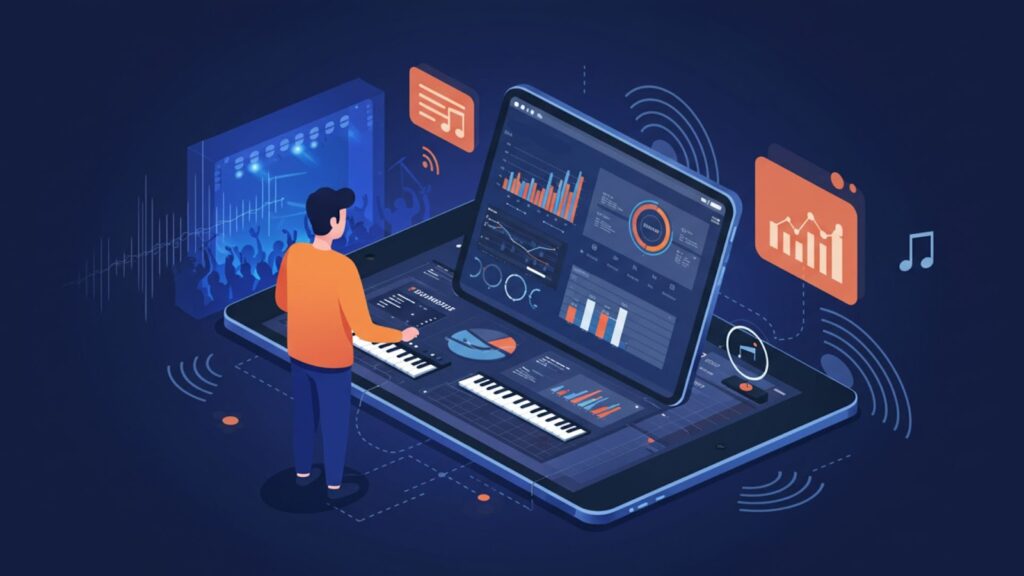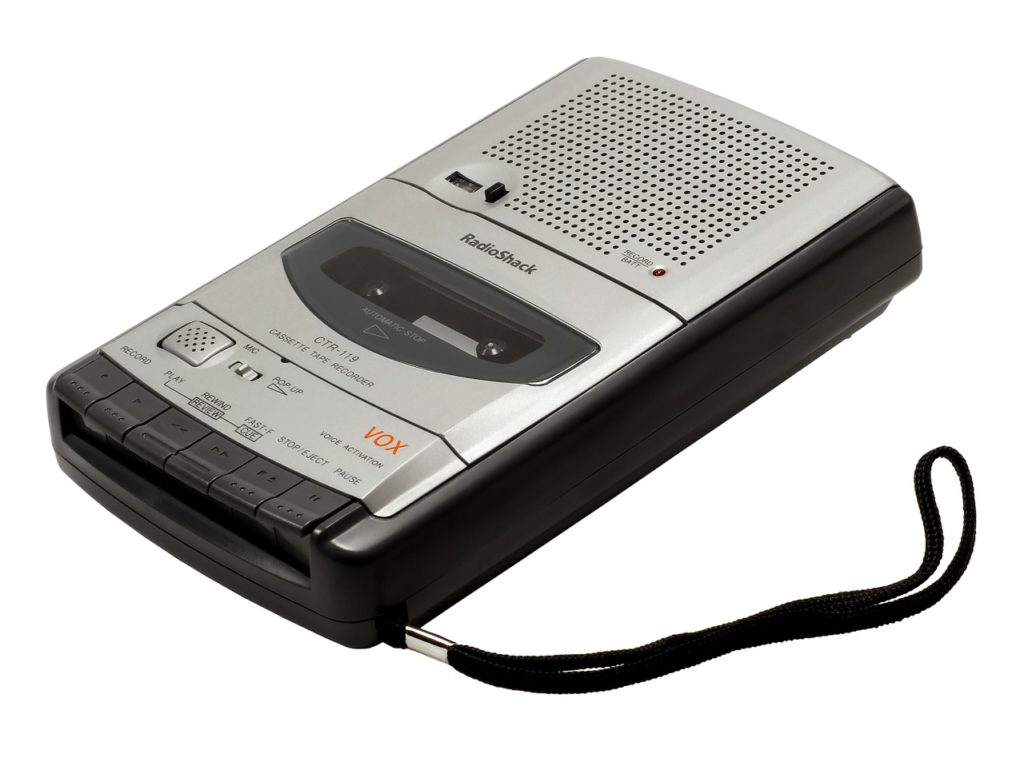
Music Promoter Software: What to Look For
Music promoter software is transforming the live music industry with automation and integration. Key features include robust financials, collaboration tools, mobile accessibility, and AI-powered analytics. Choosing the right platform can make or break your promotional success.
- Automation eliminates manual tasks: A majority of IT leaders report that automation saves 50% of time on routine tasks, letting you focus on booking great shows
- Financial integration is non-negotiable: Real-time settlement tracking and automated ticket sale updates prevent costly errors
- Social media integration drives success: Platforms with built-in TikTok and Instagram tools capture viral moments that sell tickets
- Mobile-first design keeps you connected: Cloud-based access ensures you can work from the venue, flight, or anywhere business happens
Bottom line: The right music promotion software becomes your competitive advantage in an industry where timing and efficiency determine success.
Life as a live event promoter is full of to-dos that can involve dozens of people, from artists, agents, and their teams to management assistants, PR pros, production teams, venue teams, marketers, and more. If the endless phone calls don’t kill you, keeping up with all the emails just might. And how about those spreadsheets? Those are always fun to maintain.
Promoters can spend the bulk of their day just trying to stay organized and on top of things, but it’s exhausting. Going back and forth between emails and spreadsheets, calculators and documents, faxes and accounting software isn’t fun, but it’s all you’ve got, right?
Well, not so fast. Music promoter software aims to change how live music is promoted. Sure, the industry is changing as far as how shows are marketed, but all of the tasks required to throw a show are a constant burden for most. As such, software is finally becoming more commonplace and giving live music industry professionals a much-needed break.
What is Music Promoter Software?
In a word, music promoter software is automation. The software connects all your daily systems into a single, integrated platform accessible from anywhere. Work from your desk, mobile device at the show, on a flight, or across the globe. No more manual data entry, cross-checking, or duplicating tasks.
Employees estimate that automating tasks saves them 240 hours per year, while company leaders report savings of 360 hours annually. Additionally, 51% of IT leaders report that automation can save 10–50% on costs. These gains translate to millions in annual savings for companies that embrace automation.
What’s New in Music Promoter Software for 2025?
The live music market reached $34.84 billion in 2024 and is expected to grow at 8.78% annually through 2034. This explosive growth is driven by several game-changing innovations:
AI-Powered Analytics: Modern event promotion platforms now include predictive analytics that help promoters identify trending artists, optimize pricing strategies, and forecast attendance based on historical data and social media buzz.
Social Media Integration: With platforms like TikTok and Instagram driving ticket sales through viral moments, the best promoter software tools include built-in social media scheduling, hashtag optimization, and influencer collaboration features.
Real-Time Data Tracking: Advanced live music promotion software provides instant insights into ticket sales, venue capacity, and audience engagement, allowing promoters to make data-driven decisions on the fly.
Mobile-First Design: As the industry becomes increasingly mobile, the top platforms ensure full functionality from smartphones and tablets, enabling promoters to manage shows from anywhere.
How Should You Assess Your Current Promoter Software Tools?
There are several options when choosing music promotion software. Here are a few things to look for in your search. Keep in mind that how you do business matters. You may do things a bit differently than a fellow promoter, so before you start looking for software, start with the following three steps:
1. Assess Your Systems and Applications
What systems and applications are you using right now to promote your shows? Modern businesses typically manage multiple software solutions, often leading to disconnected workflows and data silos. Take a good look at how you communicate with venues, partners, agents, artists, and anyone else required to put on the show. How many systems of record do you use? How do you keep track of ticket sales? Holds? Settlements? Financials? Are any of these systems integrated? Write it all down. You’ll need this later.
2. Assess Your Time
Most live music promoters have long days and even longer nights. Wouldn’t it be great to get some of your time back? How much time are you spending organizing, planning and putting on a show? Where is that time devoted? Many music promoters find they are spending the bulk of their time performing manual tasks. Spend a week writing down how your time is spent and see if you can identify patterns. You may be shocked to see how much time you’re potentially wasting just looking for things in emails and updating spreadsheets.
3. Imagine Your Dream Scenario
This may sound silly, but this practice is actually quite helpful. In a perfect world, how would you like to see your day go? Do you enjoy going back and forth between applications? If you had a piece of software you designed yourself, what would it allow you to do? What would you do with any extra time the software may provide you? Write it down.
What Are the Essential Features in Live Music Promotion Software?
The next part of the assessment moves to the actual features of the software. With steps one through three documented, you can take a more precise look at the various music promoter software options to determine which ones offer the capabilities you most need.
Financials That Actually Work
Most music promotion software products lack comprehensive financial components. This feature tracks all expenditures, income, and ticket sales in one place, plus provides analysis for a big-picture view of your business’s health with drill-down capabilities. See both historical and forward-looking data showing money flow. Settlements automatically upload into the tool. No manual entry required.
Create accurate budgets and forecasts based on reliable historical data, then make smarter decisions from actual financials instead of gut instinct. Eliminate ridiculous spreadsheets as all money is automatically tracked with every ticket sale, marketing expenditure, and transaction.
Modern event promotion platforms include dynamic pricing optimization, real-time revenue tracking, and integrated payment processing connecting directly with major ticketing platforms like Ticketmaster and Eventbrite. The best music marketing tools provide comprehensive analytics, helping promoters understand which revenue streams drive the most profit.
Collaboration Tools That Keep Everyone Connected
Email may be standard, but finding important messages buried in an inbox is frustrating. It’s hard to know what was sent when, when the last correspondence occurred, and if issues were resolved.
Music promoter software includes communication tools that archive all conversations under individual topics, clients, or shows, allowing teams to see entire conversation streams in one place. Connect your team and stakeholders to the same platform so everyone works from the same source of truth. Control access to sensitive information, allowing outsiders to see only what you want them to see.
The best live music promotion software includes integrations with Slack, Microsoft Teams, and other communication platforms, plus built-in video conferencing for remote collaboration. Smart concert marketing requires seamless coordination between team members, whether working from the office, venue, or home.
Calendar Management That Syncs Everything
Your promoter software should offer a robust calendar combining hold requests with appointments. When a hold is accepted, it automatically places it into your calendar. Include all expected calendar features while easily replacing whatever tool you currently use or connecting to your preferred calendar.
If you connect your team to the platform, easily share what’s happening without calling or emailing each other. Everyone works from the same calendar integrated with collaboration tools for seamless efficiency and productivity.
Advanced calendar features include AI-powered scheduling optimization, automatic conflict detection, and integration with venue booking systems for real-time availability updates.
Settlement Processing That Eliminates Headaches
When your shows are over, everyone has to get paid. A settlement component will automate the entire process for faster payouts, better documentation, and accurate accounting. You should be able to see an instant summary of all payments made, what you still owe, and what’s still owed to you. Be sure your music promoter software allows you to calculate accurate tax payments and other variable expenses so you never have to worry if you overpaid or underpaid your artists.
The settlement component must tie back into your financials, too. The key to any “solution” is that it makes your life easier. You shouldn’t have to take data from one system and manually transfer it to another. All of the data should be automatically updated to reduce redundancy and human error.
How Independent Agencies Transform Their Businesses With the Right Software
Sometimes the best way to understand the impact of music promoter software is to see it in action. Atlas Touring, a Charleston-based agency for independent musicians, experienced this transformation firsthand. Founded by Matt Washburn and Caleb Coker, Atlas Touring started like many agencies, using a mix of basic booking software, spreadsheets, and Google Docs. The system worked, but it was archaic with too many redundancies and manual steps. Their agent assistant had to spend five or more hours per week creating Excel documents just to track payments and generate six status reports for agents.
After switching to an integrated live music promotion software platform, the results were dramatic. That same task now takes less than 45 minutes per week. “Instead of spending so much time on admin work, he now spends those extra hours on providing greater value to the agents, even booking talent himself because the software makes it so easy,” says Coker. The efficiency gains enabled Atlas Touring to scale from two founders to seven agents and several assistants, representing 40 artists across various genres.
The intuitive system allows them to train assistants faster, creating a clearer path from admin work to becoming full agents.
What Integration Capabilities Should You Expect?
Any music promoter software worth the investment offers one-click integrations with tools you already use: calendars, ticketing platforms, and task management systems.
Modern event promotion platforms should integrate with:
- Ticketing Platforms: Eventbrite, Ticketmaster, StubHub, specialized music ticketing services
- Social Media: Instagram, TikTok, Facebook, Twitter, with scheduling and analytics capabilities
- Streaming Services: Spotify for Artists, Apple Music for Artists, Bandcamp
- Payment Processing: Stripe, PayPal, Square for direct transactions
- Marketing Tools: Mailchimp, Constant Contact, SMS marketing platforms
- Venue Management: Integration with venue booking systems and capacity management tools
The best promoter software tools include API access for custom integrations with specialized tools your team might already depend on. For venues looking to scale operations, understanding how to market concerts at different venue sizes becomes vital as your software capabilities expand.
Why Timing Matters: The 2025 Advantage
Automation saves time and money when booking shows. You have one real-time source of truth accessible in the cloud. You’re more organized, productive, and profitable because you’re no longer wasting time on inefficient processes. Artists get paid on time. Venues manage requests quickly with fewer resources. Everyone wins.
Promoters who embrace modern technology capture opportunities competitors miss entirely. Social media platforms like TikTok now drive concert attendance more than traditional marketing channels. Viral moments turn unknown artists into headliners overnight, but only if you have systems in place to capitalize on that momentum quickly. The winning promoters use data-driven decision making, real-time analytics, and integrated platforms that let them move fast when opportunities arise.
Frequently Asked Questions
What makes music promoter software different from general event management tools?
Music promoter software is specifically designed for the unique needs of live music professionals. Unlike general event platforms, it includes features like artist contract management, settlement calculations, venue hold tracking, and integrations with music industry-specific platforms like Spotify for Artists and Bandsintown. The workflows are built around how promoters actually work, from initial artist outreach through final settlement.
How much time can promoter software tools actually save?
Real-world results vary, but Atlas Touring reduced its weekly administrative tasks from 5+ hours to just 45 minutes after implementing the right platform. Industry studies suggest promoters can save 2–3 hours per day through automation, which adds up to 240–360 hours annually, time that can be reinvested in booking more shows and growing revenue.
What’s the most important feature to look for in live music promotion software?
Financial management capabilities are essential because money tracking is where most promoters struggle. Look for platforms that automatically sync with ticketing systems, provide real-time settlement calculations, and offer comprehensive reporting.
Should I choose cloud-based or on-premise event promotion platforms?
Cloud-based platforms are essential in 2025’s mobile-first music industry. You need access to your data, whether you’re at a venue, traveling with artists, or working from home. Cloud platforms also provide automatic updates, better security, and seamless collaboration with team members and external partners. On-premise solutions can’t match the flexibility modern promoters require.
Ready to Transform Your Live Music Business?
If you’re serious about working in the music industry and have persevered through challenges, focus on making your processes as fast and efficient as possible. The right music promoter software will be a major player in facilitating that growth. While competitors juggle spreadsheets and chase emails, you’ll leverage real-time data, automated workflows, and integrated systems that let you focus on creating unforgettable live music experiences.
Ready to see how the right platform can transform your business? Get started with a demo today and discover why industry professionals are calling Prism the future of live music promotion.fewer resources. Everyone wins.

Matt Ford is the founder and CEO of Prism.fm, an Austin-based software company revolutionizing live music event management. With a background in entrepreneurship and a degree from the University of Wisconsin-Madison School of Business, Ford combined his self-taught coding skills with firsthand experience as a concert promoter to address the inefficiencies he observed in the industry. In 2018, he launched Prism.fm, an all-in-one platform designed to streamline operations for venues, promoters, and agencies by replacing cumbersome spreadsheets with integrated tools for booking, financial tracking, and contract management. Under his leadership, Prism.fm has grown significantly, achieving $3 million in annual recurring revenue post-COVID and securing over $15 million in funding . Ford’s commitment to building user-centric solutions has positioned Prism.fm as a trusted partner for over 1,500 venues and promoters worldwide.



